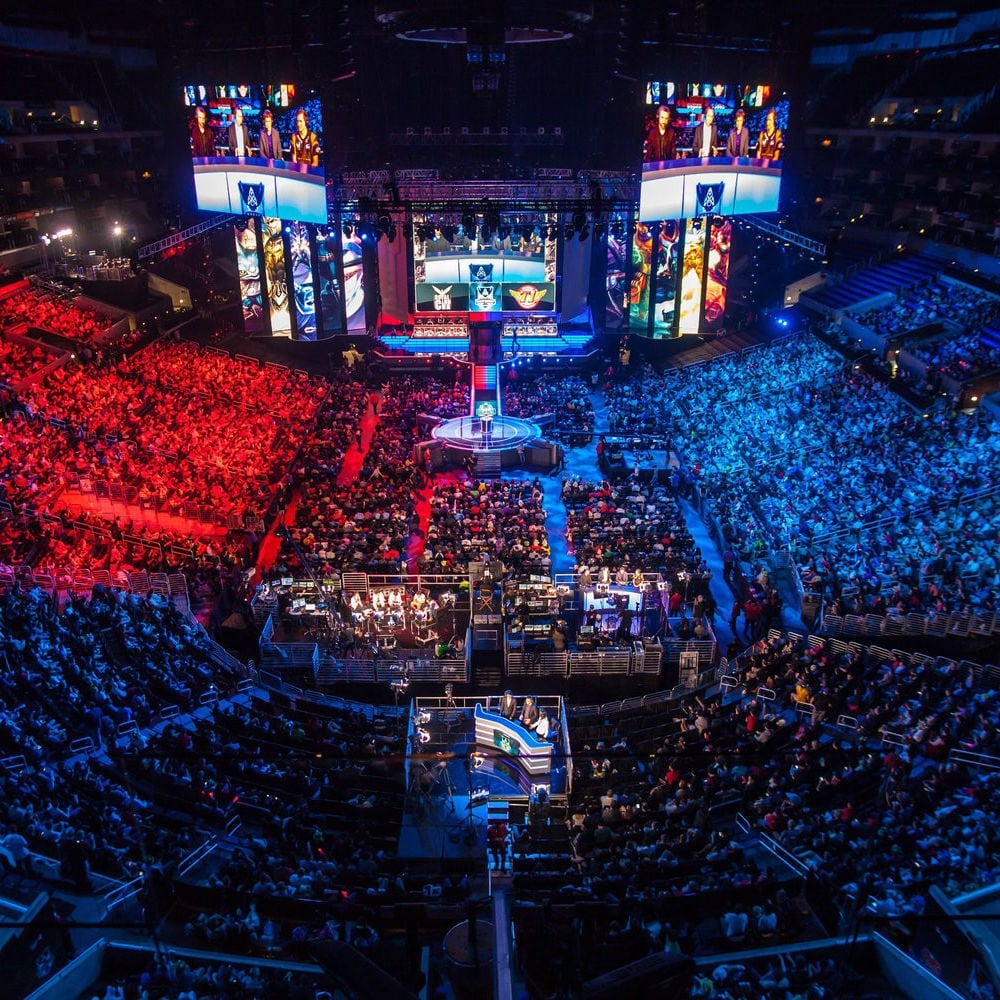
Overview of Esports
Definition of Esports
Esports, short for electronic sports, signifies a competitive form of video gaming where individuals or teams compete against each other in a variety of games. Unlike casual gaming, esports involves professional players, strategic gameplay, and organized tournaments. Popular genres include first-person shooters, real-time strategy, multiplayer online battle arenas, and sports simulation games. The thrill that comes from watching skilled players showcases their abilities is what draws many fans to this new frontier of sports.
History and Evolution of Esports
The inception of esports can be traced back to the early arcade days of the 1970s, with events such as the first-ever video game competition held at Stanford University in 1972. As technology evolved, so did competitive gaming. Key milestones include:
- 1980s: The rise of arcade competitions.
- 1990s: Online gaming gained momentum, highlighted by titles like “Doom” and “StarCraft.”
- 2000s: Esports began to take shape with platforms like Twitch launching, allowing fans to stream gameplay and competitions live.
By the 2010s, esports transformed into a global phenomenon, with leagues, sponsorships, and dedicated fanbases thriving. This evolution positions esports as a vibrant part of the sports landscape today, merging gaming with professional competition in ways previously unimaginable.
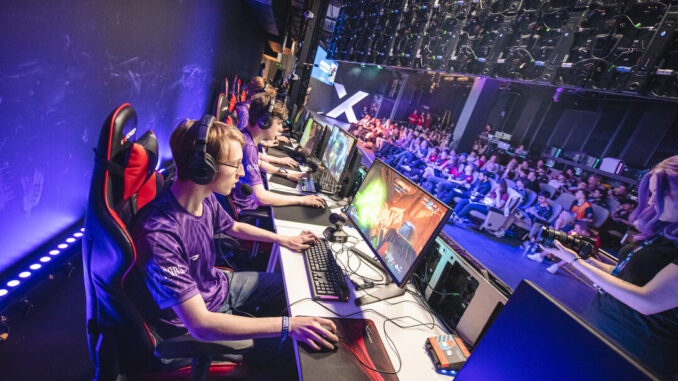
Growth and Popularity
Global Expansion of Esports
The growth of esports has been nothing short of phenomenal, leading to its global expansion as a cultural phenomenon. Countries around the world are embracing esports, with dedicated arenas, university programs, and government support. Major tournaments now attract players and fans alike from diverse regions, showcasing a melting pot of cultures. Some key points illustrating this global reach include:
- Asia: Dominates the esports scene, particularly in games like Dota 2 and League of Legends.
- North America: Home to a thriving professional scene with major leagues such as the Overwatch League.
- Europe: Known for its rich heritage in strategy-based games like Counter-Strike.
Increasing Viewership and Fan Base
With the global expansion comes an ever-growing fan base and viewership, which is catching the attention of traditional sports supporters. Esports events are raking in viewers comparable to major sporting events:
- Major tournaments often pull in millions of online viewers.
- Platforms like Twitch and YouTube host billions of hours of esports content annually.
For many fans, watching esports is not just about the competition; it’s about community, strategy, and the shared experience of supporting their favorite teams. The combination of entertainment, skill, and interaction positions esports as a staple of modern sports culture, demonstrating why esports is the future of competitive gaming.
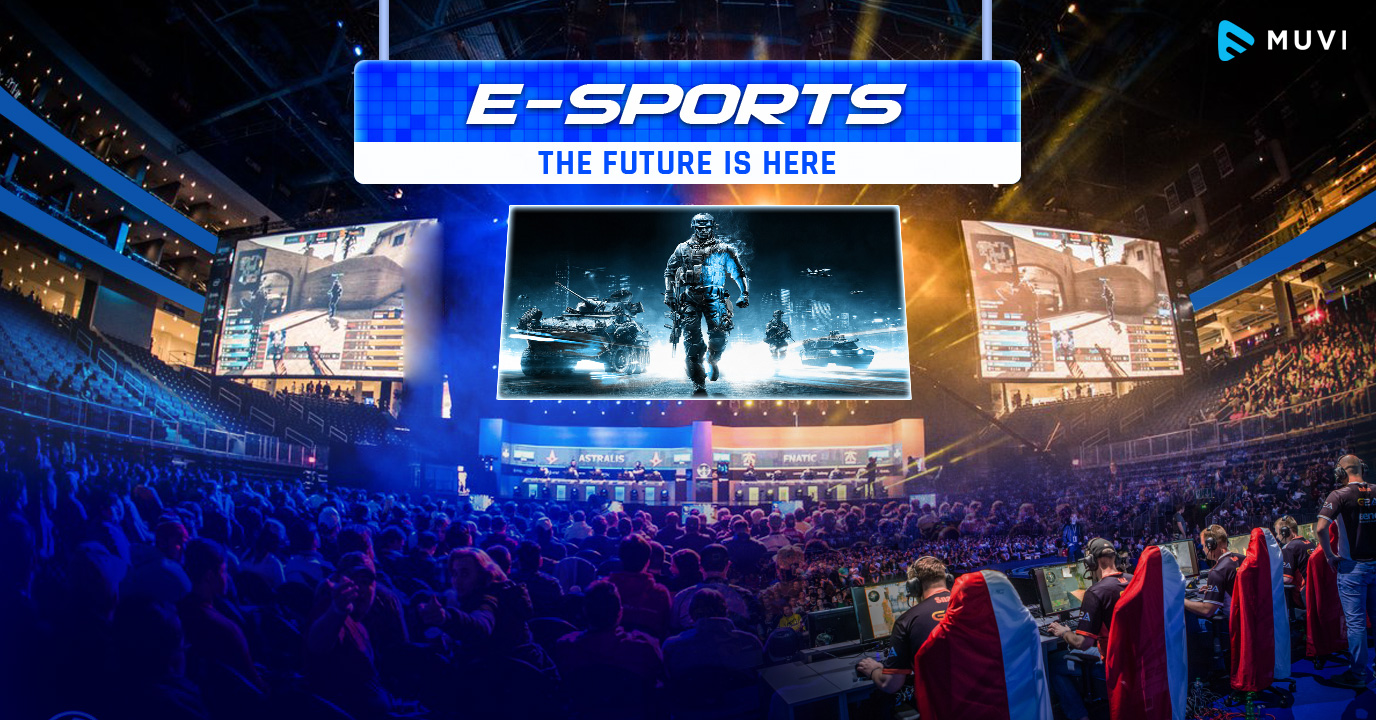
Esports Ecosystem
Players and Teams
The lifeblood of the esports ecosystem is undoubtedly its players and teams. These individuals exemplify dedication, skill, and teamwork, often training for hours every day to reach the pinnacle of their sport. Players often form teams that compete together, creating a unique camaraderie that adds depth to the gaming experience. Notable teams like Team Liquid and FaZe Clan have become brands in their own right, attracting sponsorships and fans alike.
- Star Players: Look at names like Faker from League of Legends and s1mple from Counter-Strike, who have become icons in the space.
Tournaments and Championships
The excitement of esports is often amplified during major tournaments and championships, which can draw huge crowds both online and offline. Events like The International for Dota 2 and the League of Legends World Championship not only showcase elite talent but also provide substantial prize pools, sometimes reaching millions of dollars.
- Format Variety: Tournaments can include round-robin formats, elimination rounds, and more, offering thrilling matches that keep fans on the edge of their seats.
Esports Organizations and Structures
Behind the scenes, numerous esports organizations facilitate the operations of teams and players. These organizations manage everything from training regimens to sponsorship deals. They play a crucial role in shaping the careers of players and offering a structured environment.
- Key Roles: Coaches, analysts, and managers all contribute to building a successful team.
This intricate ecosystem, comprising players, tournaments, and organizations, creates a dynamic landscape that is continually evolving, fortifying the argument for why esports is the future of competitive gaming.

Technology and Innovation
Role of Technology in Esports
Technology plays a pivotal role in the growth and evolution of esports, influencing everything from gameplay mechanics to broadcasting. Advances in hardware and software have transformed the way games are developed and played. For instance, improved graphics technologies allow players to experience stunning visuals that enhance gameplay immersion. Some key technological advancements impacting esports include:
- High-Performance Gaming PCs: These machines allow players to engage seamlessly in competitive matches without lag.
- Stream Quality: Enhanced streaming technology showcases esports events with high-definition visuals, providing fans with an exhilarating viewing experience.
Game developers continually innovate, ensuring that esports titles remain fresh and engaging while meeting the expectations of the competitive community.
Virtual Reality and Augmented Reality in Esports
Virtual Reality (VR) and Augmented Reality (AR) are emerging technologies that are taking esports to the next level. While still developing, these technologies offer unique opportunities for interactive gaming experiences. Imagine participating in a VR tournament where players feel physically immersed in the game world or an AR overlay that provides real-time stats during a live match:
- VR Competitions: Games like “Echo Arena” showcase how VR can revolutionize multiplayer formats.
- AR Enhancements: Tools like Microsoft’s HoloLens are merging gaming with reality, offering innovative ways to engage with gameplay and statistics.
Incorporating these technologies not only enriches the user experience but also promises to reshape how competitions are conducted, making it evident why esports is the future of competitive gaming.

Opportunities and Challenges
Career Opportunities in Esports
The esports industry has opened a plethora of career opportunities, attracting individuals from various backgrounds. From players to support staff, there are numerous roles available within this vibrant industry. Some notable career paths include:
- Professional Player: Competing at the highest level in various game titles.
- Coach/Analyst: Helping teams strategize and improve performance based on in-depth game analysis.
- Event Organizer: Planning and executing major tournaments and events.
- Content Creator: Engaging fans through streaming and social media platforms on games and esports culture.
Many universities now offer specialized degrees in esports management, reflecting the increasing recognition of this field.
Challenges Facing the Esports Industry
Despite its rapid growth, the esports industry faces several challenges. Issues like lack of regulation, player burnout, and the sustainability of teams can impact its trajectory:
- Player Well-being: The intense competition can lead to mental strain and physical fatigue among players.
- Diversity & Inclusion: Ensuring that the esports community is welcoming and varied is an ongoing struggle.
- Sponsorship Market: While sponsorships are growing, reliance on them can create volatility if trends shift.
Navigating these challenges is crucial for establishing a long-lasting and prosperous future, reinforcing why esports is indeed the future of competitive gaming.
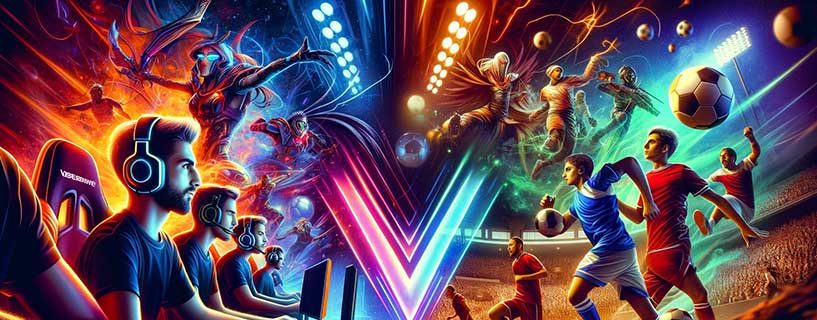
Esports vs. Traditional Sports
A Comparison of Esports and Traditional Sports
When comparing esports with traditional sports, several distinct differences and similarities emerge that underscore their unique identities. Esports is rapidly gaining recognition as a legitimate competitive arena, but it operates differently from traditional sports. For example:
- Accessibility: Esports can be played from the comfort of home, making it more accessible for aspiring players worldwide.
- Physical vs. Mental Stamina: Traditional sports often require significant physical prowess, while esports focus on mental agility and strategic decision-making.
- Spectator Experience: Both sports attract large audiences, but esports heavily utilizes streaming platforms like Twitch, making it highly interactive and engaging for fans.
As someone who’s attended both esports tournaments and traditional sports events, the energy in the arena—be it from a live game of FIFA or a thrilling League of Legends match—is palpable.
Potential Synergies Between Esports and Traditional Sports
Despite their differences, there are substantial opportunities for synergy between esports and traditional sports. Many traditional sports teams are investing in esports, recognizing its appeal to younger, tech-savvy audiences. This creates a unique crossover, allowing fans to experience the best of both worlds:
- Collaborative Events: Joint tournaments could attract a diverse audience, enhancing brand reach.
- Shared Training Techniques: Insights from sports psychology could benefit esports players, leading to more structured training regimens.
These synergies highlight that both esports and traditional sports can coexist and thrive together, further establishing esports as the future of competitive gaming.

Future Trends in Esports
Emerging Technologies in Esports
As the esports landscape continues to evolve, emerging technologies are set to shape its future dramatically. Innovations like artificial intelligence, machine learning, and blockchain are increasingly finding their way into gaming. Here are a few notable trends:
- AI Coaches: Advanced algorithms can analyze player performance and provide strategic recommendations, akin to traditional coaching methods.
- Blockchain: This technology is presenting new ways for players to secure their earnings, ensuring transparency during sponsorships or prize distributions.
- Mobile Gaming Revolution: With mobile devices rapidly gaining popularity, many esports titles are targeting mobile platforms, making competitive gaming even more accessible.
Having attended various events, it’s clear that technology will be vital in enhancing the spectator experience, personalizing content, and even streamlining tournament organization.
Predictions for the Future of Esports
Looking ahead, several predictions suggest a vibrant future for esports:
- Broader Acceptance: Esports will gain more recognition as a mainstream sport, leading to increased media coverage and viewership numbers.
- Integration in Education: More educational institutions may offer esports scholarships and programs that foster young talent.
- Increased Diversity: Efforts to promote inclusivity will continue, broadening the player and fan base significantly.
These future trends confirm why esports stands to be the leading frontier in competitive gaming, offering boundless opportunities for growth and engagement.
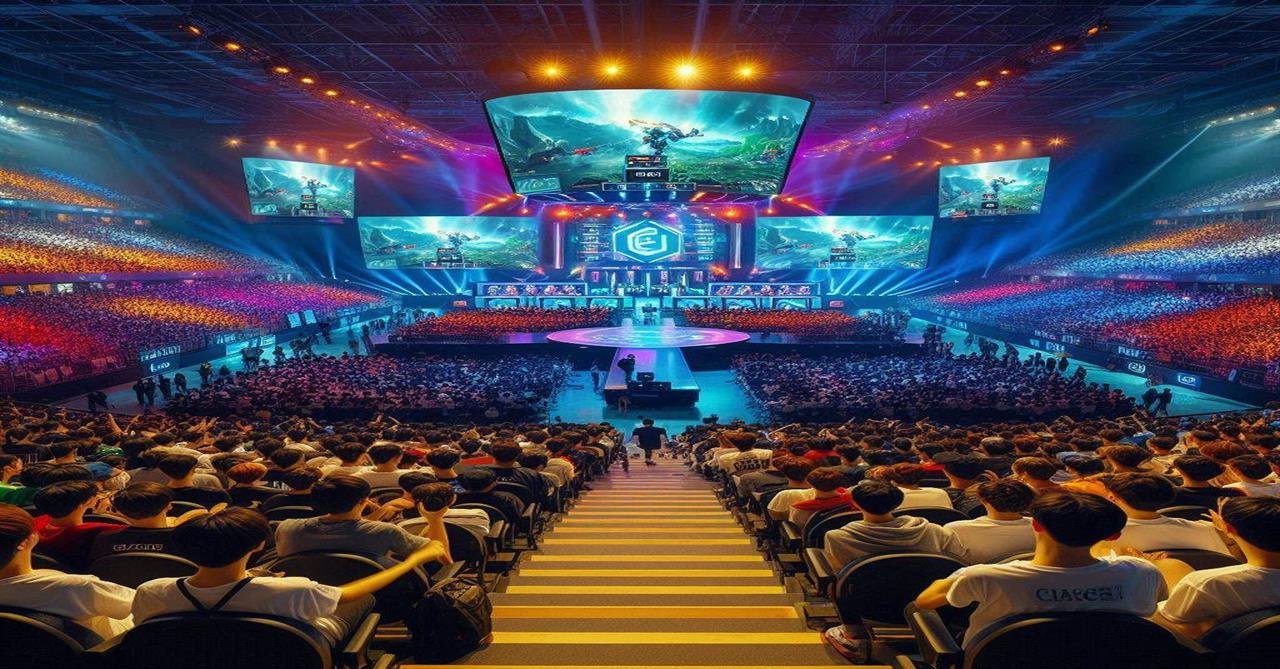
Conclusion and Outlook
Summary of Esports Advantages
As we’ve explored throughout this article, esports offers numerous advantages that position it as a key player in the future of competitive gaming. Some standout benefits include:
- Global Accessibility: Players and fans can connect from all corners of the world, breaking geographical barriers.
- Diverse Career Opportunities: From professional players to commentators, there’s a career path for everyone, making it an inclusive industry.
- Community Engagement: Real-time interactions during streams foster a sense of belonging and shared experience among fans.
These advantages not only highlight the attractiveness of esports but also underscore its potential to grow and thrive in various markets.
The Future Outlook of Esports
Looking ahead, the future of esports appears exceptionally bright. As technology continues to advance and traditional sports organizations recognize its immense potential, we’re likely to see:
- Increased Investment: With more stakeholders interested, funding and sponsorship opportunities will expand, providing stability and growth.
- Cultural Integration: Esports will continue to weave itself into popular culture, expanding its reach and entertainment value.
- Enhanced Viewer Experiences: Innovations in technology will make watching esports even more engaging, further solidifying its place in the sporting world.
In conclusion, esports is not just a temporary craze; it’s a robust, evolving landscape that champions competition and community. With a promising outlook, it certainly is the future of competitive gaming.

